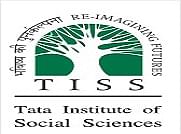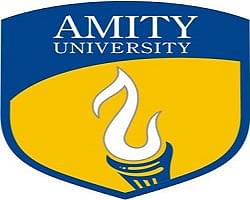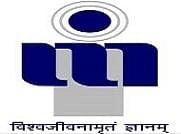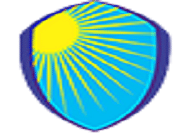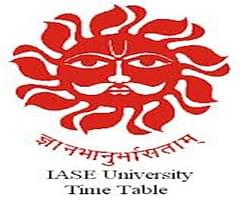About BCA Course
Bachelor of Computer Applications (BCA) from the best affordable college , is an undergraduate degree program that provides students with a
strong foundation in computer science and its applications in various domains.
BCA is designed to equip students with the knowledge and skills necessary to
pursue careers in the field of information technology (IT) and related
industries. Here's an introduction to BCA:
§ Curriculum: BCA
programs typically cover a wide range of topics related to computer science,
including programming languages, database management systems, computer
networks, software engineering, web development, and computer applications in
business and management.
§ Core Subjects: Some of
the core subjects commonly included in BCA curriculum are:
§ Programming
Fundamentals
§ Data
Structures and Algorithms
§ Computer
Organization and Architecture
§ Operating
Systems
§ Database
Management Systems (DBMS)
§ Object-Oriented
Programming (OOP)
§ Web
Technologies
§ Software
Engineering
§ Networking
and Security
§ Elective Courses: BCA
programs often offer elective courses in specialized areas of computer science,
allowing students to tailor their studies according to their interests and
career goals. Elective topics may include artificial intelligence, machine
learning, cloud computing, mobile application development, cybersecurity, and
more.
§ Practical Learning: BCA
programs typically include hands-on laboratory sessions and projects to provide
students with practical experience in applying theoretical concepts to
real-world scenarios. These practical exercises help students develop
problem-solving skills and gain proficiency in using various software tools and
technologies.
§ Industry-Relevant
Skills: BCA programs focus on equipping students with skills that are in
demand in the IT industry. Graduates of BCA programs are prepared for roles
such as software developer, web developer, database administrator, systems
analyst, network administrator, IT consultant, and more.
§ Duration: The
duration of a BCA program is typically three years of full-time study, divided
into six semesters. However, the duration may vary depending on the educational
institution and the specific curriculum they offer.
§ Further Education: After
completing BCA, students may choose to pursue higher education in the form of a
master's degree in computer science, information technology, or related fields.
Additionally, some students opt for professional certifications to enhance
their skills and credentials in specific areas of IT.
§ Career
Opportunities: Graduates of BCA programs have opportunities for employment in various
sectors, including IT companies, software development firms, banks, government
agencies, educational institutions, e-commerce companies, and more. The demand
for skilled IT professionals continues to grow, making BCA a popular choice
among students aspiring to enter the field of information technology.
Syllabus of BCA course
The syllabus of a Bachelor of Computer Applications (BCA) from
Universityfindo is as follows :
§ Foundation Courses:
Mathematics for Computing
Fundamentals of Computer Science
Programming Principles and Algorithms
Computer Architecture and Organization
Data Structures
Discrete Mathematics
§ Core Computer
Science Subjects:
Object-Oriented Programming (OOP) using languages like Java, C++, or
Python
Database Management Systems (DBMS)
Operating Systems
Software Engineering
Computer Networks
Web Technologies
Data Communication and Networking
Computer Graphics
§ Elective Courses:
Students may have the option to choose elective courses based on their
interests or career goals. Elective topics may include:
Artificial Intelligence
Machine Learning
Cloud Computing
Mobile Application Development
Cybersecurity
Multimedia Systems
Internet of Things (IoT)
§ Practical Learning:
§ BCA
programs typically include practical sessions, lab work, and projects to
provide hands-on experience with programming languages, software tools, and
technologies. Practical exercises may involve developing applications,
designing databases, building websites, and implementing networking solutions.
§ Project Work:
In the final year of the BCA program, students often undertake a major
project where they apply their knowledge and skills to develop a software
application or system. The project work allows students to demonstrate their
understanding of concepts learned throughout the program and showcase their
problem-solving abilities.
§ Soft Skills
Development:
While the emphasis in BCA programs is on technical skills, there is also
a focus on developing soft skills such as communication, teamwork, critical
thinking, and time management. These skills are essential for success in the IT
industry and are often cultivated through group projects, presentations, and
interaction with peers and faculty.
§ Industry
Internship/Training:
Some BCA programs may include an internship or industrial training
component where students gain practical experience by working with IT companies
or organizations. Internships provide valuable exposure to the industry and
help students develop professional skills and networks.
Scope of BCA course
The Bachelor of Computer Applications (BCA) course from the top college of India various opportunity for your successful future . Here are
some key aspects of the scope of the BCA course:
v Software
Development: BCA graduates can pursue careers as software developers, where they
design, develop, and maintain software applications for various platforms such
as web, mobile, desktop, and enterprise systems. They may work with programming
languages like Java, Python, C++, or JavaScript to create innovative software
solutions.
v Web Development: With the
increasing demand for web-based applications and online services, BCA graduates
can specialize in web development. They can work as front-end developers,
back-end developers, or full-stack developers, building interactive and dynamic
websites and web applications using technologies such as HTML, CSS, JavaScript,
and various web frameworks.
v Database
Administration: BCA graduates with expertise in database management systems (DBMS) can
pursue careers as database administrators (DBAs). They are responsible for
designing, implementing, and maintaining databases, ensuring data integrity,
security, and performance. They may work with SQL databases like MySQL,
PostgreSQL, Oracle, or NoSQL databases like MongoDB.
v Network
Administration: BCA graduates can specialize in network administration and pursue
careers as network administrators or system administrators. They are
responsible for managing computer networks, configuring network devices,
ensuring network security, troubleshooting network issues, and implementing
network infrastructure solutions.
v Cybersecurity: With the
growing threat of cyberattacks and data breaches, there is a high demand for
cybersecurity professionals. BCA graduates can specialize in cybersecurity and
pursue careers as cybersecurity analysts, ethical hackers, security
consultants, or information security managers. They are responsible for
protecting organizations' digital assets, identifying security vulnerabilities,
and implementing security measures to mitigate risks.
v Mobile Application
Development: BCA graduates can specialize in mobile application development and
pursue careers as mobile app developers. They design and develop mobile
applications for platforms like Android and iOS, using programming languages
such as Java, Kotlin, Swift, or React Native. Mobile app developers create
engaging and user-friendly mobile apps for smartphones and tablets.
v IT Consulting: BCA
graduates with strong analytical and problem-solving skills can work as IT
consultants, providing advisory services to organizations on various IT-related
issues. They may assist in technology strategy, IT infrastructure planning,
software implementation, process optimization, and digital transformation
initiatives.
v Entrepreneurship: BCA
graduates with an entrepreneurial mindset can start their own IT businesses or
startups. They can develop innovative software products, offer IT services, or
establish consulting firms catering to specific industry needs. Entrepreneurial
ventures allow BCA graduates to leverage their technical skills, creativity,
and business acumen to create value and drive innovation.
Overall, the scope of the BCA course is vast and dynamic, offering
numerous career opportunities in the rapidly evolving field of information
technology. BCA graduates are well-equipped with technical expertise,
problem-solving abilities, and adaptability to thrive in various IT roles and
industries.
Admission process for BCA
Admission process for best BCA University is as
follows :
v Research and
Selection of Institutions: The first step is to research and identify the
universities or colleges offering BCA programs that align with your academic
interests, career goals, location preferences, and other criteria important to
you.
v Check Admission
Requirements: Once you've identified potential institutions, carefully review their
admission requirements, including academic qualifications, minimum eligibility
criteria, and any additional entrance exams or selection procedures they may
have.
v Academic
Qualifications: BCA programs typically require candidates to have completed their
higher secondary education (12th grade) or its equivalent from a recognized
board or institution. Most institutions specify minimum marks or grades
required for admission.
v Entrance Exams (if
applicable): Some universities or colleges may require candidates to take entrance
exams as part of the admission process. These exams may test the candidate's
proficiency in subjects such as mathematics, English, and computer science.
Examples of common entrance exams for BCA include:
v Common
Entrance Test (CET)
v State-Level
Entrance Exams
v University-Level
Entrance Exams
v National-Level
Entrance Exams (e.g., NIMCET)
v Application
Submission: Complete the application form for the BCA program of your choice
according to the instructions provided by the university or college. This
usually involves filling out an online application form and submitting required
documents, such as academic transcripts, entrance exam scores (if applicable),
proof of identity, and any other requested documents.
v Application Fee: Pay the
application fee as required by the university or college. The application fee
amount can vary from one institution to another and is usually non-refundable.
v Submission Deadline: Make
sure to submit your application before the specified deadline. Missing the
application deadline may result in your application not being considered for
admission.
v Merit
List/Selection Process: After receiving applications, universities or
colleges may prepare a merit list based on candidates' academic qualifications,
entrance exam scores (if applicable), and other selection criteria. Some
institutions may also conduct interviews or counseling sessions as part of the
selection process.
v Notification of
Admission Decision: Once the selection process is complete, the
university or college will notify applicants of their admission decision,
usually via email or through an online portal. Admission decisions may be
offered on a rolling basis or at specific notification dates determined by the
institution.
v Acceptance and
Enrollment: If you receive an offer of admission, carefully review the terms and
conditions of the offer, including any deadlines for accepting the offer and
submitting enrollment deposits. Once you've accepted the offer, follow the
instructions provided by the institution to complete the enrollment process and
officially secure your spot in the BCA program.
Duration of BCA
The duration of a Bachelor of Computer Applications (BCA) program
typically spans three years of full-time study. During these three years,
students cover various subjects related to computer science, programming,
software development, database management, and other areas of information
technology.
Each academic year is typically divided into two semesters, making a
total of six semesters over the three-year period. The structure of the program
may also include practical sessions, projects, internships, or industrial
training to provide students with hands-on experience and exposure to
real-world scenarios in the field of computer applications.
While the standard duration of a BCA program is three years, it's
essential to note that the duration may vary depending on factors such as the
educational institution's curriculum, academic calendar, and any breaks or
interruptions in study. Additionally, students may have the option to pursue
the program on a part-time basis, which could extend the duration of the
program.
BCA provides you opportunity for your overall development and makes you
strong at many aspects .





